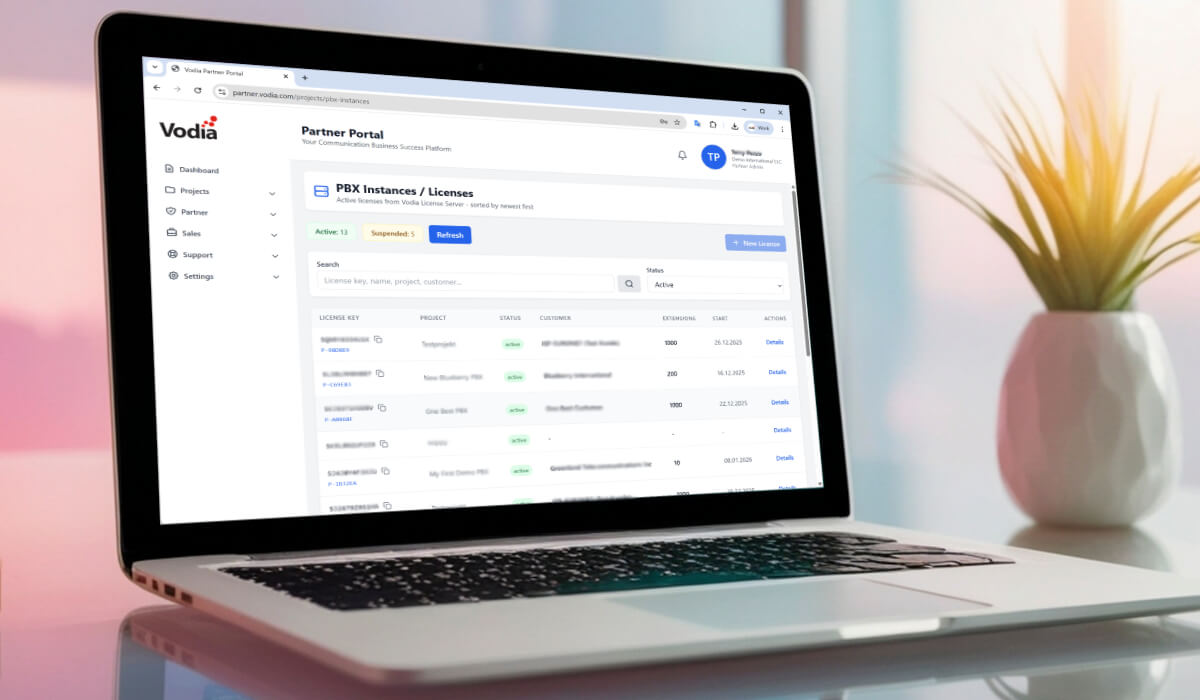The New Vodia Partner Portal and Partner Program
The new Vodia Partner Portal and Partner Program provide a streamlined, self-service way for partners to license, sell, and deploy Vodia PBX solutions more efficiently. Shaped by partner feedback, the portal brings license management, partner levels, pre-qualified leads, marketing resources, and access to professional services into one place. Partner certification unlocks progression beyond onboarding, while a welcome package rewards partners at first login.
.svg)






